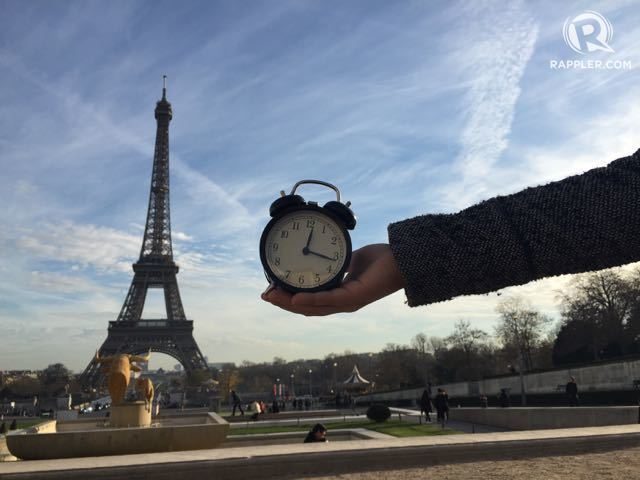SUMMARY
This is AI generated summarization, which may have errors. For context, always refer to the full article.

LE BOURGET, France – What’s missing?
A quick word-search on the 27-page draft text of the United Nations climate pact reveals which areas are priorities and which ones are left out.
Ideally, everyone is protected under a new climate agreement. Wording, however, is very crucial in the text – as even a single term could either make or break an entire sector.
The latest version was released late Thursday, December 10 (early Friday, December 11 in Manila), as negotiators talked for hours on end to come up with, hopefully, a universal and legally-binding climate agreement.
Here is a quick rundown:
- Mentioned twice in the draft decision and agreement.
- Only seen in the preamble, which means it may be less operative, some advocates say.
- Did not make it to main body of the text.
“Recognizing also that when developing policies and taking action to address climate change, Parties should promote, protect, respect, and take into account their respective obligations on all human rights…”
The role of human rights is “weakened” as it is not mentioned in the purpose of the agreement, argued Climate Tracker, an independent analysis team on the climate negotiations.
Some, however, felt slightly victorious after the human rights clause made it out of the controversial “brackets.” In the earlier version of the draft, mentions of human rights were at risk of being dropped – as its inclusion was opposed by some countries, such as those with lands rights issues.
The human rights elements in the draft are a direct contribution from the Philippine delegation, which pushed for human rights to be a “bedrock” of the agreement.
- Mentioned 6 times in the draft in the draft decision and agreement.
- The draft mentions that Parties should protect and promote the rights of indigenous peoples when developing policies and actions related to climate change.
- Mentions sharing of knowledge of indigenous peoples in climate action.
“Facilitates the exchange of experiences and sharing of best practices on climate action by non-Party stakeholders, including by providing a platform to strengthen indigenous peoples’ knowledge, practices and technologies on mitigation and adaptation in a holistic and integrated manner.”
Earlier in the negotations, various IP groups feared their rights would be left out or watered down in the climate agreement.
- Gender is mentioned 5 times in the in the draft decision and agreement.
- There is a mention that adaptation action and capacity-bulding should have a “gender-responsive” approach.
Gender equality, however, has been absent in the mitigation section ever since the first version of the draft. The Women and Gender Constituency calls it a “major omission.”
Like other important themes, a direct mention of gender equality is mostly confined in the preamble.
Vulnerable sectors
- The rights of vulnerable sectors such as IPs, migrants, children, persons with disabilities, and women are briefly mentioned in the preamble.
- Not much is expounded on the subject in the main body of the text.
- Agriculture and farmers are not directly mentioned in the draft agreement, although food security and hunger were touched on in the preamble.
- Biodiversity is only mentioned once in the preamble.
With agriculture being completely absent in the Paris climate talks, the UN Food and Agriculture Organization assured stakeholders that it will be put on the table next year in Morocco.
The other questions left to chase in the negotiations are matters of climate finance, financial and technological assistance, loss and damage, and “differentiated” responsibilities between rich and poor countries.
The final Paris climate agreement is slated to come out on December 12, Saturday, according to French foreign minister and conference president Laurent Fabius.
“Today, Friday, I will try to pull the pieces together and I will discuss [with] the different groups during the day. And I will be in a position to present a text which will be the final text tomorrow, Saturday morning [December 12],” Fabius said earlier.
Advocates are still hopeful that the final text to be adopted by the world would be truly fair and inclusive. – Rappler.com
Add a comment
How does this make you feel?
There are no comments yet. Add your comment to start the conversation.